Great American Rail-Trail: Catalyst Initiatives
Spurring Trail Completion
In every state along the preferred route of the Great American, needs for completing the trail vary. To spur trail completion, RTC has identified initial catalyst initiatives—projects or challenges that would most benefit from RTC’s national breadth of resources. For example, along the preferred route of the Great American, RTC will provide trail planning assistance for completing trail gaps; generate public funding support for future trail development or open trail improvements; advocate for local and state trail priorities, and provide communications support and strategy to advance trail priorities along the route; and conduct research critical to advancing trail priorities. Through these initiatives, RTC will directly support local and state partners, investing time, expertise and organizational resources in specific projects that are critical to the ultimate completion of the Great American Rail-Trail.
MARYLAND
The C&O Canal
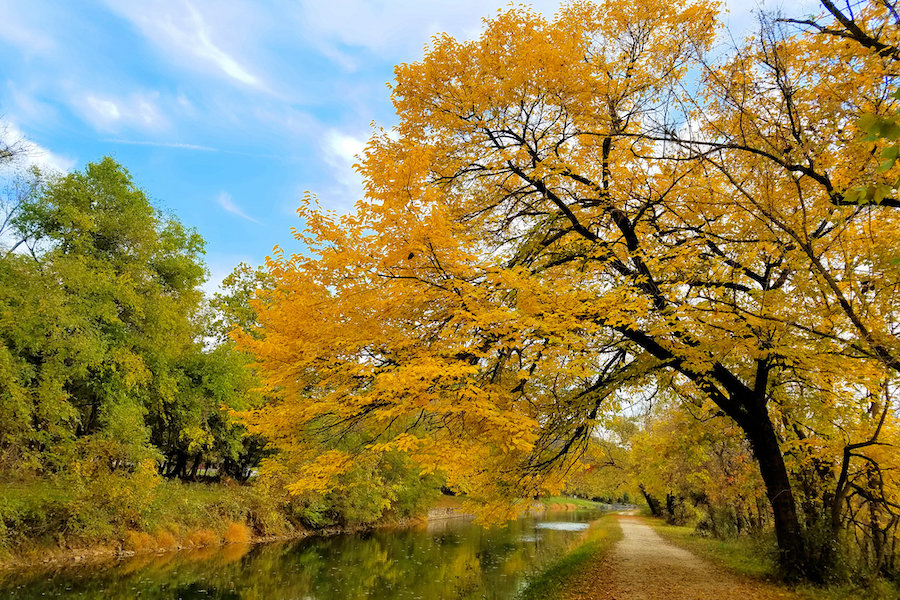
RTC will monitor and advocate for continued trail surface improvements along the historic corridor to ensure the highest-quality trail-user experience. In addition, RTC will pursue public funding for a comprehensive hydrology study of the C&O Canal Towpath to determine the status and condition of the 19th-century culverts beneath the canal that carry water through its substructure and into the Potomac River, including recommendations for costs to modernize the culvert system.
WEST VIRGINIA
Great American Rail-Trail Gap #2: Weirton to West Virginia-Ohio State Line
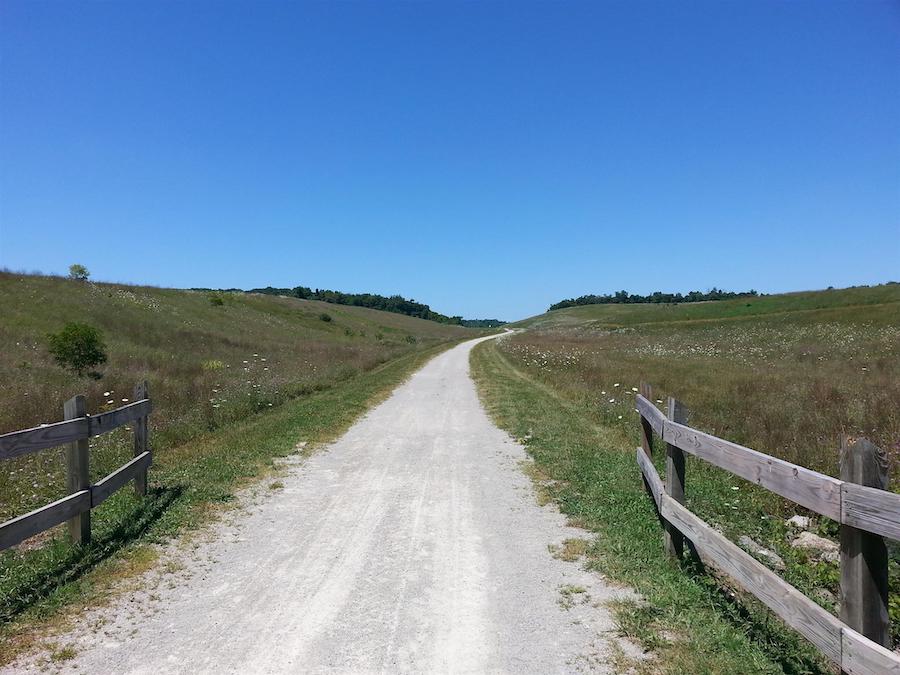
RTC will work with local partners—the Northern West Virginia Brownfields Assistance Center and the City of Weirton—to engage stakeholders in finalizing preferred route options for the trail gap. Activities will include surveying, right-of-way and land transfer negotiations, cost estimation, design and engineering, railroad engagement, funding strategy, construction assistance and bridge rehabilitation. The work will be implemented as part of RTC’s Cleveland to Pittsburgh Feasibility Study, scheduled for release in Spring 2020 and defining trail development strategy for a key corridor of the Industrial Heartland Trails Coalition, a developing 1,500-miles-plus TrailNation™ project that seeks to create a world-class trail network between Pennsylvania, West Virginia, Ohio and New York.
OHIO
Statewide Trail Network Funding
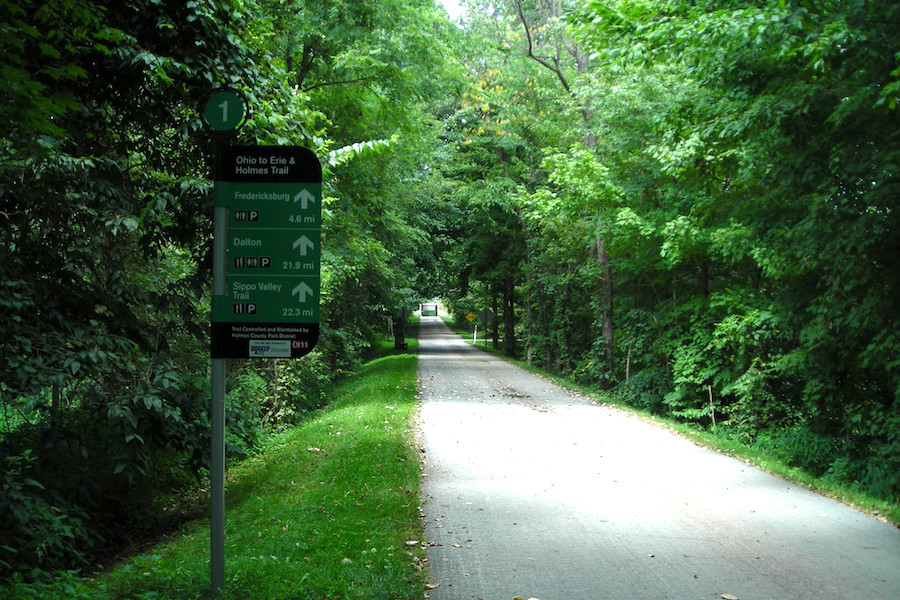
RTC will continue to work with a collaborative of more than 200 trail constituents—the OhioNetwork—to advocate for statewide public funding for trails that prioritizes networks and spines and can be used to advance the Great American Rail-Trail. In addition, RTC will continue to pursue implementation of the Ohio Department of Natural Resources State Trail Plan and work with the Ohio Legislative Trails Caucus in seeking public funding for trail networks and spines in the state.
OHIO & INDIANA
Great American Rail-Trail Gaps #14 (Wolf Creek Trail Extension—Dayton to Trotwood), #15 (Preble County Line to Ohio-Indiana State Line) and #16 (Ohio-Indiana State Line to Richmond)
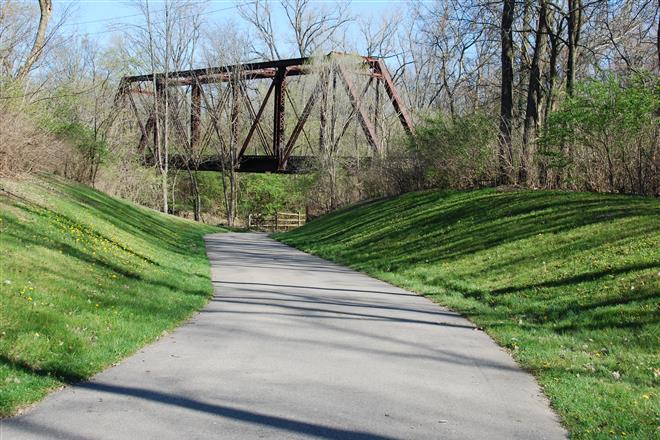
RTC will work with local partners—Preble Trails, Five Rivers Metroparks, the City of Richmond and the Preble County Park District—to provide the expertise and resources necessary to complete the combined 31.8-mile trail gap. Activities will include identifying local match funding for the Wolf Creek Trail Extension and coordinating with Preble County and the City of Richmond on activities including a corridor feasibility study, cost estimation, trail design and engineering, local stakeholder engagement, funding strategy and ultimately construction of the cross-state connector project.
ILLINOIS
Statewide Trail Funding
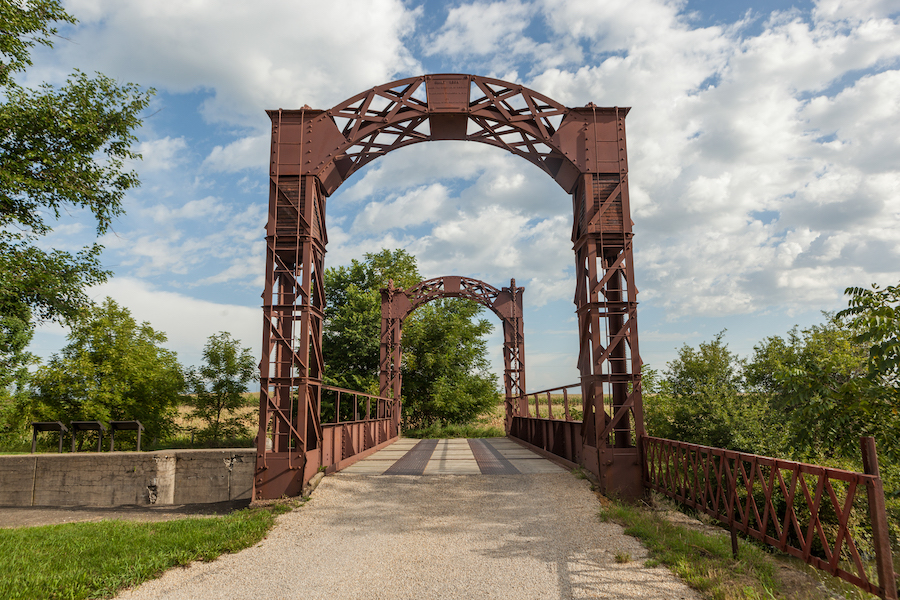
RTC will advocate for use of unobligated federal funding for trails, including funds from the Transportation Alternatives Program and the Recreational Trails Program, to meet development needs along the preferred route of the Great American. Special emphasis will be placed on the maintenance and capital improvement needs of the Hennepin Canal Parkway, one of the Great American gateway trails.
IOWA
Statewide Trail Funding
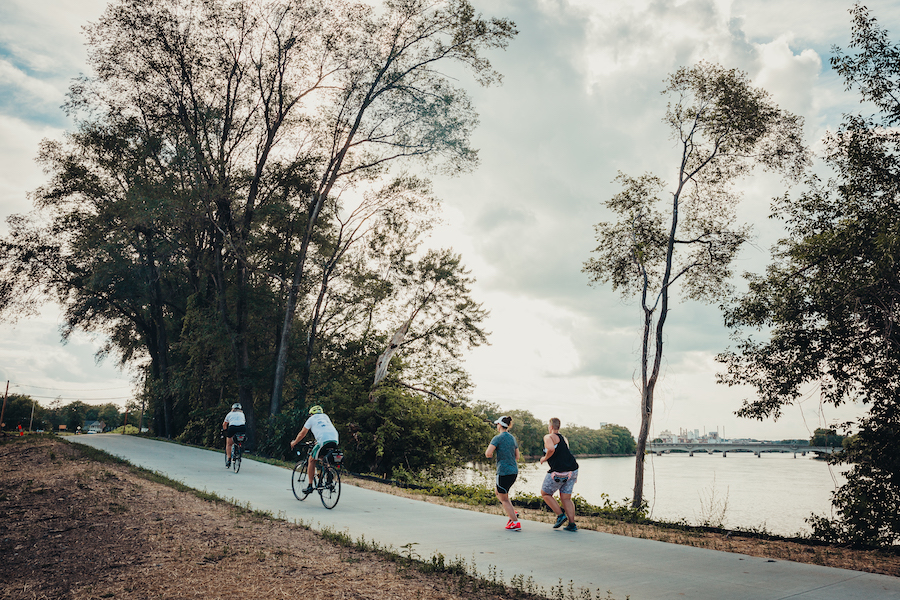
RTC will continue to support statewide advocacy efforts seeking to renew existing state trail funding as well as to create a $20 million annual state investment in trails via the Outdoor Recreation Trust Fund. During the 2020 legislative session, RTC will work with the Iowa Natural Heritage Foundation and the Iowa Bicycle Coalition in pursuit of these goals. In addition, RTC will work to ensure allocation of federal Transportation Enhancement funds toward Great American Rail-Trail priorities.
NEBRASKA
Great American Rail-Trail Gap #55: South Bend to Wabash (MoPac Trail Gap)
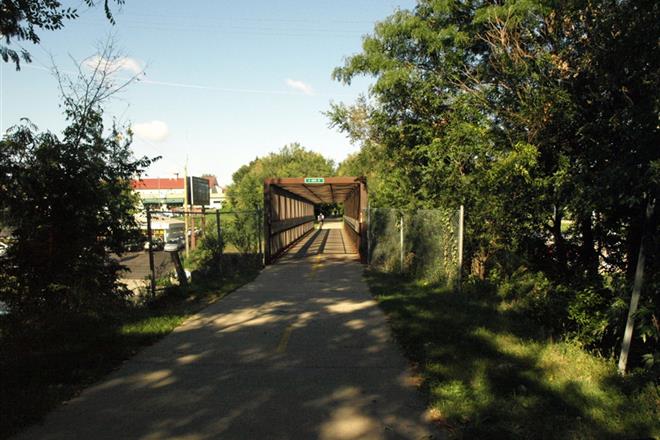
RTC will work with the local partnership, including Bike Walk Nebraska, the Nebraska Trails Foundation and the Great Plains Trail Network, pursuing strategies to complete this gap in the MoPac Trail—the last significant gap to complete a trail between Nebraska’s two population centers, Omaha and Lincoln. RTC will provide technical and planning assistance in the form of strategic planning, local property owner engagement; alternative analysis; completing a feasibility study; cost estimation; and design, engineering and construction assistance.
WYOMING
Great American Rail-Trail Gap #63: Glenrock to Evansville
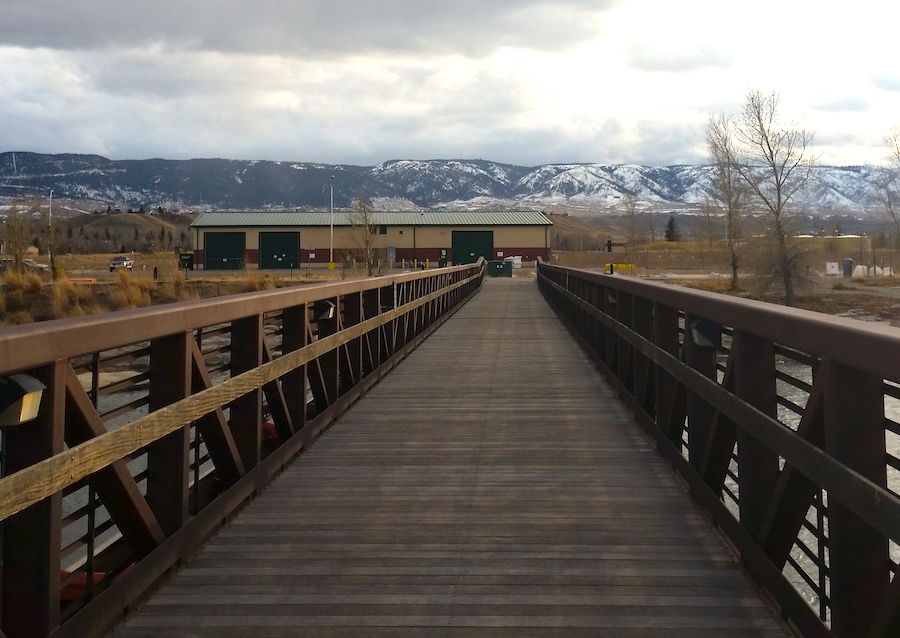
In its final report of statewide trail and active transportation recommendations, the Wyoming Bicycle and Pedestrian Task Force recommends that completing a trail between Glenrock and Evansville should be a priority as part of the Great American Rail-Trail. RTC will provide technical and planning assistance to Platte River Trails, Wyoming Pathways and Wyoming State Parks to determine ownership of the former rail line; engage with property owners and stakeholders; determine who will own and maintain the trail after completion; implement cost estimation; complete a feasibility study; pursue public funding; and provide design, engineering and construction assistance.
MONTANA
Great American Rail-Trail Gap #68: Highway 89 South Pedestrian Trail Extension
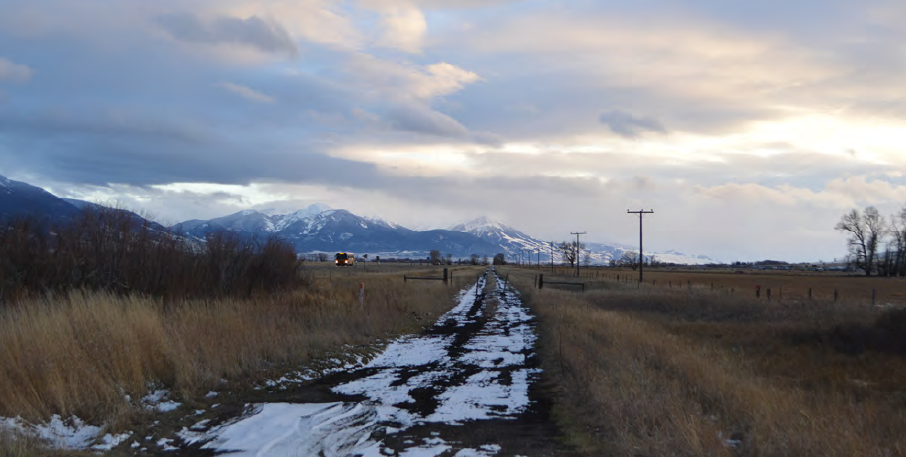
RTC will work with Park County and the Park County Environmental Council to define and pursue alternative routes for completing the trail, providing the necessary technical and planning assistance. Assistance will include a feasibility study and concept plan for the trail segment between Emigrant and Livingston; education and outreach within the community; a signage plan; and design, engineering and construction assistance. In addition, RTC will serve as a technical resource to Montana State Parks in the implementation of the Trails Program authorized and funded through S.B. 24 in the 2019 Montana legislative session.
WASHINGTON
Palouse to Cascades State Park Trail Funding
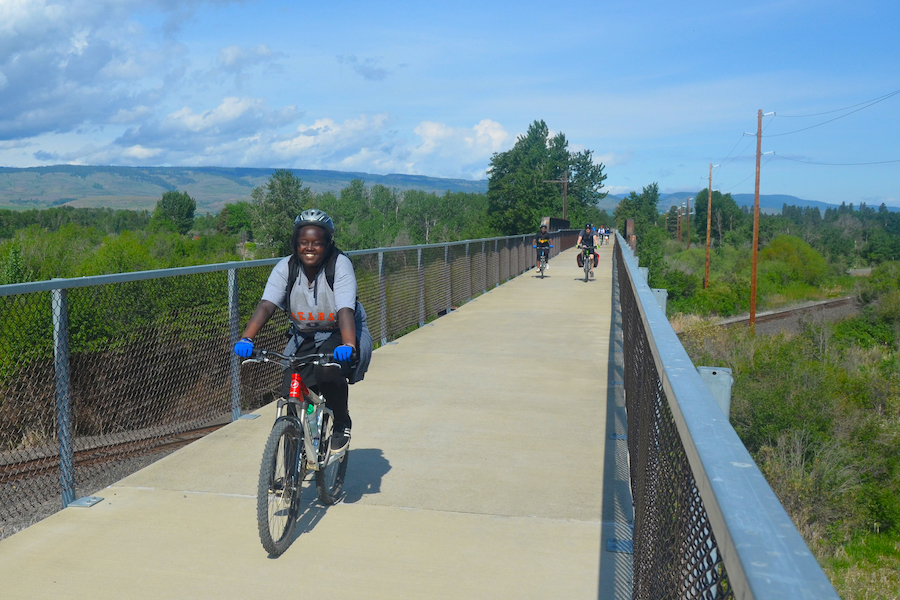
RTC will work with partners in Washington State to help secure the balance of funding for Palouse to Cascades State Park Trail projects in the 2019 Washington state budget, including the Beverly Bridge rehabilitation (Columbia River crossing on Old Milwaukee Road corridor), Malden to Rosalia upgrades (grading and resurfacing of 9-mile section plus trailhead creation) and the renovation of the Tekoa Trestle (decking, rail installation and minor structural repairs on 975-foot-long historic trestle).